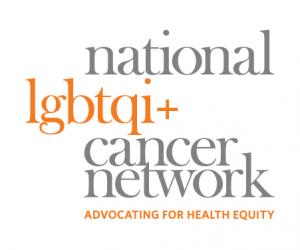Surgeon General’s Report Highlights Tobacco Disparities & Need to Eliminate Menthol and Other Flavored Tobacco Products
The National LGBTQI+ Cancer Network applauds the release of the 2024 Surgeon General’s report addressing health disparities in tobacco use.
PROVIDENCE, RI, UNITED STATES, November 19, 2024 /EINPresswire.com/ -- The following statement can be attributed to Kara Hurvitz, Esq.Policy Counsel, National LGBTQI+ Cancer Network.
“The National LGBTQI+ Cancer Network applauds the release of the 2024 Surgeon General’s report addressing health disparities in tobacco use. This report is the deepest dive yet into addressing disparities experienced by LGBTQI+ communities and the role commercial tobacco itself plays in creating and driving these disparities. We particularly appreciate the report’s call for increased availability and improvements in gathering data related to sexual orientation and gender identity, as data remain scarcer for our communities than for many other subgroups.
As the report notes, data show that youth who identify as lesbian, gay, or bisexual have a prevalence of cigarette smoking that is nearly double that of their heterosexual peers, and their use of other tobacco products is higher too. Transgender students use tobacco products at rates more than twice that of cisgender students. Among adults, both prevalence and rate of cigarette use are higher for gay, lesbian, and bisexual people as well, and use of e-cigarettes is more than double that of heterosexual people. Yet though our community members attempt to quit at much higher rates than average, our rates of success at the six month mark reflect more difficulty with cessation. The report documents in detail the role that targeted marketing, product promotion, and industry “allyship” play in our community members’ struggles.
Given these difficulties, the report’s recommendations for next steps are critical. Our communities would be particularly well-served by eliminating menthol and other flavored tobacco products, and by increasing community-level supports for cessation.”
The following statement can be attributed to Harold Abrams,
Projects Director, National LGBTQI+ Cancer Network
“Recent efforts to divide both the Black and LGBTQI+ communities by the tobacco industry highlight the urgent need to address the harm caused by tobacco use in these vulnerable populations. For LGBTQI+ individuals, the impact of targeted marketing, compounded by discrimination and stigma, has fueled disparities in tobacco use and created significant barriers to cessation. Addressing these systemic factors, alongside eliminating menthol and other flavored tobacco products, is critical to reducing harm and advancing health equity within our community.”
We also want to elevate words from our colleagues at our sibling networks:
The following statement can be attributed to Dwana “Dee” Calhoun, Dwana “Dee” Calhoun, MS, DrPH Candidate
Director, SelfMade Health Network
“We commend the 2024 United States Surgeon General Report ‘Eliminating Tobacco-Related Disease and Death, Addressing Health Disparities’ and support its shared vision that ‘Now is the time to accelerate our efforts to create a world in which zero lives are harmed by or lost to tobacco.’ By applying a public health lens that embraces all populations where they live, work, play, learn, and receive healthcare; this ground-breaking report highlights significant multi-dimensional factors (including social determinants of health) utilizing a socioecological model approach to overcome persistent barriers associated with tobacco-related disparities [including tobacco-related health disparities (TRHD) as defined by the National Cancer Institute (NCI)].
Utilizing a health equity lens, low socioeconomic status (SES) characteristics include populations residing in medically underserved areas (MUAs), Medicaid enrollees, underinsured and uninsured populations, as well as low-income populations working in blue-collar industries that are disproportionately affected by commercial tobacco dependence. This report highlights noteworthy findings regarding commercial tobacco use patterns by occupational profession and industry as well as the complex multi- layered interaction of factors associated with multi-generational tobacco-related disparities. Additionally, this comprehensive report examines the characteristics of populations with low socioeconomic status (SES) characteristics and gender, with a focus on commercial tobacco products including cigarettes, cigars, smokeless tobacco, e-cigarettes, and pipes (including hookah) as well as dual/poly tobacco use. Lastly, this report presents a ‘Blueprint for A Healthier Nation’ that invites all sectors (including industries), healthcare settings, academic institutions, organizations, schools, and communities ‘to the table.’”
The following statement can be attributed to Alex Hurst,
Director, National Behavioral Health Network for Tobacco and Cancer Control
“The Surgeon General's report is a powerful reminder that behavioral health and tobacco use are deeply interconnected. Individuals with mental health or substance use challenges are disproportionately affected by tobacco-related harm, yet they are often underserved by prevention and treatment efforts. By illuminating these inequities and outlining actionable solutions, this report reinforces the urgency of integrating behavioral health into every aspect of tobacco control. It provides a critical framework for ensuring access to equitable, evidence-based support for co-treatment and creating environments that foster wellness for all—a vision that aligns closely with the mission of the National Behavioral Health Network for Tobacco and Cancer Control."
###
This statement is available online here.
The National LGBTQI+ Cancer Network works to improve the lives of LGBTQI+ cancer survivors and those at risk by educating the LGBTQI+ communities about our increased cancer risks; training health care providers; and advocating for LGBTQI+ engagement in mainstream cancer organizations. Learn more at cancer-network.org.
Harold Abrams
National LGBTQI+ Cancer Network
email us here
Visit us on social media:
Facebook
Legal Disclaimer:
EIN Presswire provides this news content "as is" without warranty of any kind. We do not accept any responsibility or liability for the accuracy, content, images, videos, licenses, completeness, legality, or reliability of the information contained in this article. If you have any complaints or copyright issues related to this article, kindly contact the author above.

